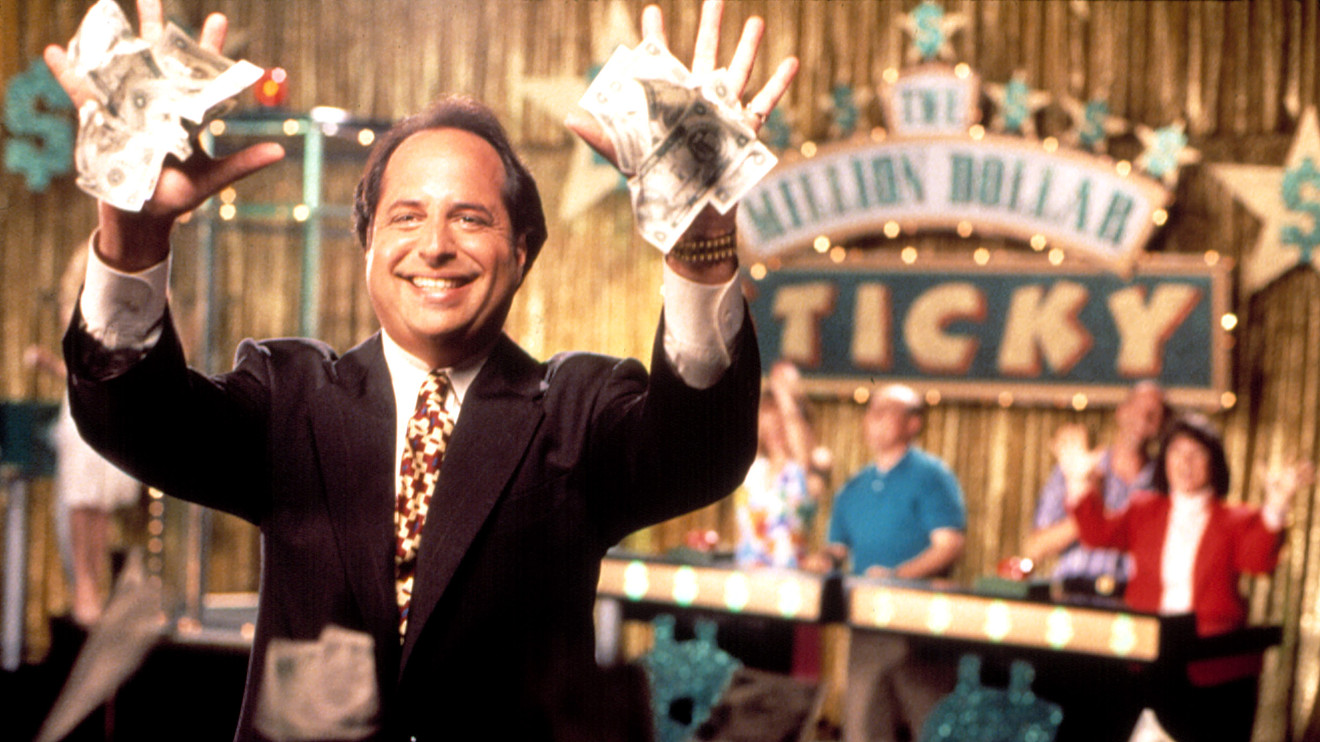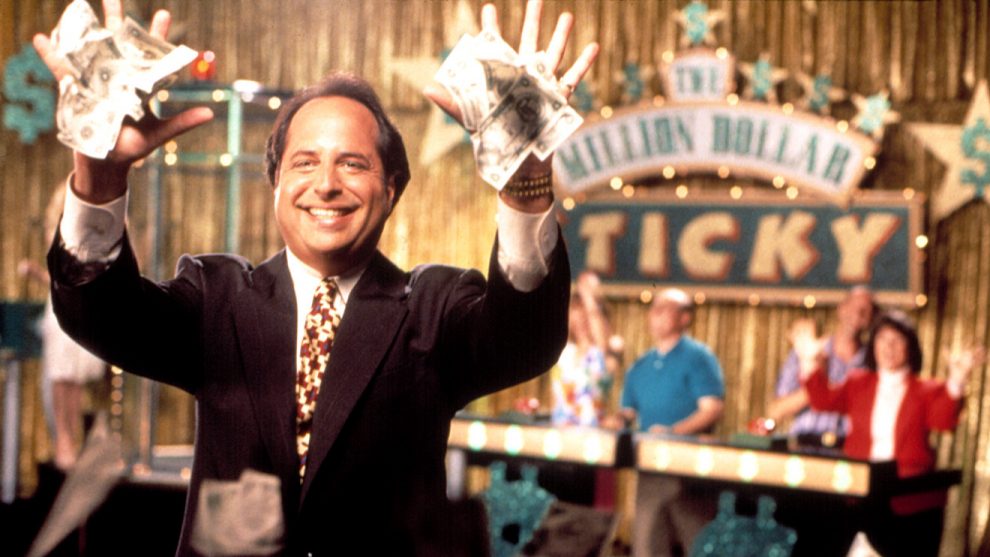
Do you know that the Mega Millions has a “$444 million” jackpot coming up this weekend, and the Powerball “$350 million”?
Well, sorry — they don’t.
Many criticisms are levied at state lotteries, but one that often gets missed is that headline jackpot figures come incredibly close to being … big, fat lies.
The Mega Millions jackpot is not really $444 million, despite what the organizers say. That notional figure is so ridiculously misleading that if a private enterprise tried to pull something similar, it would be buried 10-feet deep in lawsuits.
The actual number in real money is $177 million. If you buy a Mega Millions ticket, and you win the jackpot, and you are the only winner, that’s what you’ll actually get.
You’d want compensation for waiting 30 years to get your money back. Unless you’re calculating the headline figure for a lottery jackpot.
Yes, $177 million is plenty of dough. But it’s not $444 million. It’s 60% less.
And if you buy a Powerball ticket and you win the jackpot, you won’t get $350 million. You’ll get $139 million. That’s also 60% less.
You see a pattern here?
Where are the regulators?
Anyone else who promised you $1 and gave you 40 cents would probably get in trouble. The two lotteries are run by consortia of state lotteries. So they are in effect public bodies.
We’re supposed to have a federal Consumer Finance Protection Bureau. Yes, the current administration has confined it to bed and is keeping it heavily sedated. But under no administration, apparently, is anyone going to stop this completely bogus false advertising. It’s just too lucrative for the state governments involved.
Both lotteries offer the same justification, or defense, for these wildly inflated figures.
The headline number, they say, is truthful because it is how much a jackpot winner will receive in total payouts, over 30 years, if they agree to take their winnings over time.
Sure. Nominally, they’re correct.
Why you’re not getting the full amount
But their argument ignores three crucial things that totally change the picture when it comes to money: Inflation, time and … oh, yeah, taxes.
Take inflation. It means that one dollar 30 years from now will be worth a lot less than a dollar today. In 1989 you could buy a new American home, at the median price, for $120,000. Today: $340,000.
Even if inflation stays down around 2%, a dollar will lose 45% of its purchasing power over the next 30 years. So it’s preposterous to call a dollar to be paid out in 2049 the same as a dollar to be paid out tomorrow.
Then there’s the issue of time. Most people think of the so-called “time value of money” in terms of interest. Even if there’s no inflation, I wouldn’t hand you a dollar today in the expectation of getting a dollar back 30 years from now. I’d want compensation for going without a dollar for 30 years. A lot of compensation.
Just tossing that money into the stock market, at an average real return of 5% a year, should turn my buck into about $4 by 2049 … and I’m talking in terms of actual purchasing power. The gains due to price inflation would be on top of that.
But even if you don’t set the bar that high, you’d want at least some compensation for waiting 30 years to get your money back.
Unless, apparently, you are calculating the headline figure for a lottery jackpot.
‘Cash value’
Even worse: The lotteries deliberately backload the payouts, so that they’ll be worth even less than you might expect. Mega Millions admits that someone who wins “$444 million” this weekend won’t receive the final $200 million until the 2040s.
No kidding.
What a chisel this is. I’ve received better offers from credit-card companies.
The more honest figure for each jackpot is the so-called “cash value.” You can see it printed underneath the headline figure — in small print.
The word “cash” is the giveaway. The headline number isn’t paid in soybeans, but it’s not real money either.
The “cash value” is what you’d get if you took your entire winnings straightaway. The “$444 million” Mega Millions jackpot has a “cash” value of $281 million. The “$350 million” Powerball has a cash value of $221 million. That’s the actual jackpot in real money today.
And then, of course, there are taxes. A winner is going to pay the top rate, and right now at the federal level that’s 37%. (Any state taxes would be extra.)
So the net amount you could actually pocket free and clear comes to $177 million, for the Mega Millions, and $139 million, for the Powerball.
Like I said, it’s a lot of dough. No one who wins is going to be complaining. But it’s not the figure you may have expected.
The defense
The organizers defended their use of the headline figures when we contacted them.
Carole Bober Gentry, speaking on behalf of the Maryland lottery, a participant in Mega Millions, said: “Mega Millions and Powerball have always advertised the annuity values of their jackpots, and it is quite clear to our players and the media that the cash option is available. In fact, the cash payout amount is always issued along with the annuity value, ensuring that our players have complete jackpot information. Taxes, of course, vary depending on where the winner lives, so there is no way to predict that amount.”
The Powerball Grand Prize amount is identified as 30 annual payments. The present value (cash value) is also advertised.
Powerball Product Group Chairman David Barden, the New Mexico Lottery CEO, said: “It would be nearly impossible to determine an individual’s specific tax consequences of winning a Powerball Grand Prize. Jurisdictional income tax rates vary considerably and assuming the maximum federal tax liability may not be accurate in all cases. Likewise, attempting to determine the rate of inflation of the next 29 years is not a reasonable exercise.”
Meanwhile, Mega Millions says the odds of a ticket winning the jackpot is one in 303 million. For Powerball it’s one in 292 million.
By this math, the real net value today of the jackpots comes to 58 cents per Mega Millions ticket and 48 cents per Powerball ticket.
The cost of the tickets? Two bucks.
Brett Arends is a MarketWatch columnist.







